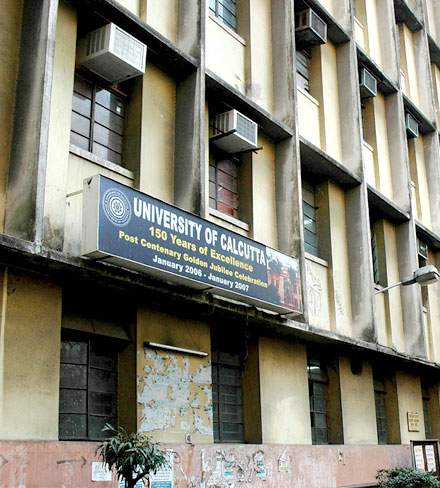Year of Establishment : 2002
Year of Establishment :The pioneering Department of Atmospheric Sciences, erstwhile the Centre for Atmospheric Sciences, was established in the year 2002 under the Institute of Environmental & Atmospheric Sciences, University of Calcutta, which till date is the sole Department offering four semester MSc. Course in Atmospheric Science in the eastern India. Prof. Sutapa Chaudhuri was given the charge of founder Coordinator of the Department in the year 2002 and continued till 2014. Prof. S. K. Midya took over charge as Coordinator in the year 2014.The Department has four core faculty positions and more than twenty post doctoral fellows/registered PhD students/ Project Fellows. The first academic session of the M.Sc. Course in Atmospheric Sciences commenced from the year 2002. Initially the course was designed for two years M. Sc from the academic session 2002 to 2006. Later, from the academic session 2006 onwards the two years M.Sc. Course is converted to two years four semester course. Subsequently with fervour initiative of Prof. Sutapa Chaudhuri, the Centre of Excellence in Climate Sciences is established in the University of Calcutta in the year 2017. The Centre of excellence will act as the nodal research Centre for Climate Extremes: Climate Modelling
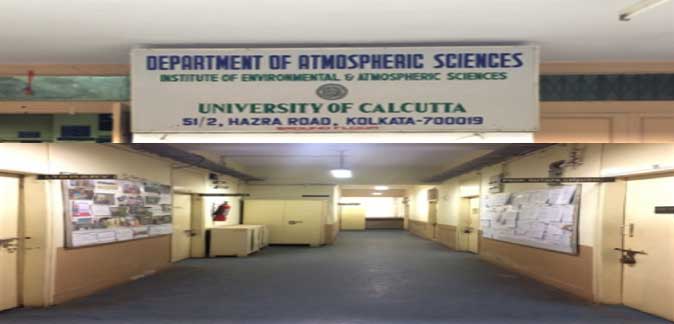
| Name | Designation | Area of specialisation | Email/Phone number |
|---|---|---|---|
| Dr. Subrata Kumar Midya [Profile] |
Professor & HOD | Electronics; Ozone Chemistry, Chemical Kinematics, Radar Meteorology; Earthquake, Airglow, Satellite Meteorology, Solar systems, tropospheric phenomena | [email protected] 9433609129 |
The inadequate number of core faculty to run the full fledged two years four semesters Masters Course as well as regular Doctoral Programme necessitated the involvement of guest faculties to support in the completion of the syllabus within schedule. The guest faculties acquainted with the subject are invited through Departmental Board with the approval of the Hon’ble Vice Chancellor, University of Calcutta for teaching the students in the Department:
The Department of Atmospheric Sciences was established with a view to developing manpower in Weather and Climate Sciences. Weather Data analytics, Exploration of different state of the art computational techniques including Numerical Weather Prediction for weather data analysis pertaining to develop forecast models for weather and climate systems, understand the physics and dynamics of weather extremes like severe thunderstorms, tropical cyclones, flood, earthquake, landslide, drought, , Monsoon System – its variability, Oceanography, Geophysics, upper latitude phenomena, coupled Systems, Space science, Disaster Management & Mitigation etc are the aspects of interest.
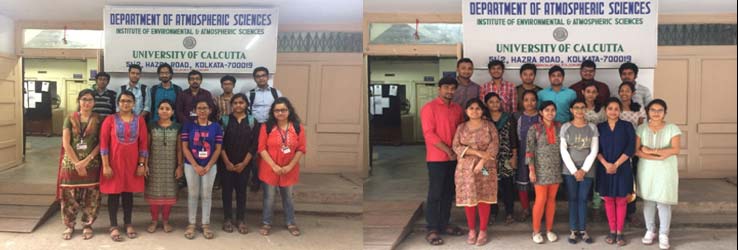
Eligibility for the Course The Honours Graduates in Physics, Mathematics, Chemistry, Statistics and Meteorology are eligible for the course. The candidates must have Physics & Mathematics either as Honours or as Pass subject. 55% marks in honours and 60% marks in 10+2 is required for obtaining the admission form. The selection list is prepared by adding the 50% marks of honours and 50% marks of the Aptitude test. Total Intake of students per academic session was initially 15 and now increased to 16
Course Catalogue [Click Here]
Student Facility : The Department has two comfortable Air Conditioned class rooms for the students to run two semesters simultaneously with the facilities of separate desks, smart board, Over Head Projectors and internet facilities. Computer Laboratory with Server, LAN and Internet facility for each student is available. Each student can work in a separate computer in each batch. The Registered PhD Fellows, Project Fellows and Post Doctoral Fellows have separate computers procured from different GOI supported Projects. Work Station is available for running state of the art numerical models.
Ten Automatic Weather Stations have been installed in ten locations around West Bengal under a DST supported project including one in the University Campus. Students collect and analyze the data for laboratory work. CAAQMS is also installed on the ground floor of the Horticulture building for laboratory work under MAPAN National Network Project.
The Departmental Library has about 2000 books on the subject. Students are provided three cards and are allowed to borrow two books at a time. The third card is for reading the books in the library. The students can borrow books with the same library card from the central library of the University. One well equipped Conference Hall is available for conferences, seminars, meetings, training etc. The students participate in weekly seminars.
The students are encouraged to attend training, seminars etc. in other organizations in India and Abroad as well for added exposures.
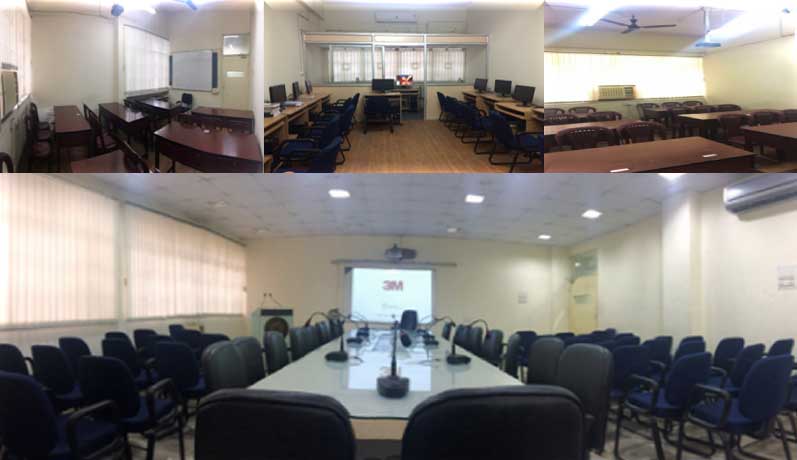
Alumni :
| Session [2002 – 2004) | Session [2003 – 2005) | Session [2004 – 2006) | Session [2005 – 2007) |
|---|---|---|---|
| Anindita De Sarkar | Surya Kanti Dutta | Bappaditya Nag | Chumki Roy |
| Anuradha Das | Chandan Bag | Praloy Dutta | Iman Guha |
| Goutami Bandyopadhyay | Anasuya Mitra | Soumi Dey | Sumana Sarkar |
| Maloshree Niyogi | Jayatri Sen | Joyati Sarkar | Anirban Middey |
| Moumita Biswas | Moumita Mondal | Debashree Goswami | Bishakha Guha Roy |
| Shipra Roychowdhury | Amrita Pandey | Srabanti Ballav | Chinmay Mallik |
| Sonel Ghosh | Mehuli Das | Sujata Mandal | Sharmila Sur |
| Suchandra Aich Bhowmick | Maitrayee Karmakar | Sudipta Rana | Mousumi Roy |
| Sunetra Bhattacharya | Shrabona Majumder | Joyeeta Chatterjee | Moumita Pal |
| Anindya Sunder Adhikary | Madhuparna Mukherjee | Anwesha Bhattacharya | Subho Dalal |
| Debashish Majumdar | Sayak Chakraborty | Sandipan Mukherjee | |
| Dibakar Rakshit | Gopal Mukherjee | Arpita Das | |
| Niladri Banerjee | Aptauddin Laskar | Abhijit Basu | |
| Rampada Maity | Sunandan Chatterjee | Moumita Bhattacharya | |
| Tanmoy Dhar | Snigdha Dutta | ||
| Session [2006 – 2008) | Session [2007 – 2009) | Session [2008 – 2010) | Session [2009 – 2011) |
| Subhankar Ghosh | Samim Jamadar | Dipanjan Ghosh | Somnath Bose |
| Soumik Basu | Sukanta Sau | Rohit Ghosh | Rajdeep Saha |
| Samrat Dasgupta | Rahul Chakrabarty | Samitaksha Talukdar | Debashis Das |
| Avishek Dutta | Sudipta Chandra | Upal Saha | Shirsendu Das |
| Rajat Deb | Sudipa Chowdhury | Sankhadip Das | Arjya sarkar |
| Ipsita Putatunda | Pami Mukherjee | Tapomay Hazra | Susnata Basu |
| Soumi Chakraborty | Sharadia Dey | Kritika Sanyal | Paromita Chakrabarty |
| Tania Guha | Pritha Karmakar | Sweta Das | Debanjana Das |
| Anindita Paul | Indrani Basak | Arumita Roy Chowdhury | Soumita Banerjee |
| Neeti Malvya | Kabitri Nag | Suchandra Guhathakurta | Bithi De |
| Joyita Mukherjee | Debrekha Ghosh | Sayantani Ojha | Debashree Dutta |
| Satabdi Sarkar | Sampa Mitra | Jayanti Pal | |
| Bony Chakraborty | Kamalika Sengupta | ||
| Debolina Ghosh | |||
| Session [2010 – 2012) | Session [2011 – 2013) | Session [2012 – 2014) | Session [2013 – 2015) |
| Sourangsu Chowdhury | Soumyajit Hazra | Abirlal Metya | Arpita Das |
| Supriya Kundu | Soumi Dutta | Soumya Samanta | Shruti Varshney |
| Ayanangsu Pan | Manjistha Roy Chaudhury | Sarbojit Biswas | Pubali Banerjee |
| Biplab Dhar | Tanmoy Mukherjee | Debajyoti Pandey | Pranayan Das |
| Abhinandan Ghosh | Srijani Chowdhury | Arkadeb Banerjee | Arnab Nandy |
| Fatema Khan | Sudipta Ghosh | Suprotim Roy | Suman Halder |
| Sriyanka Pal | Devanil Choudhury | Sreyashi Debnath | Priyam Chowdhury |
| Paramita Mondal | Sweta Bhattacharyya | Ishita Sarkar | Neelotpal Sinharoy |
| Payel Dutta | Moumita Das | Madhurima Chakraborty | Somdeep Kumar Das |
| Monami Dutta | Sweta Chakraborty | Prajna Paramita Debnath | Biswabani Bhadra |
| Oindrila Nath | Abhishek Das | Chandrima Chakrabarty | Pritam Das Mahapatra |
| Susmita Mukherjee | Soujan Ghosh | Sudeshna Purakait | Subhankar Mukherjee |
| Priyanka Ghosh | Rimjhim Maity | Tanuka Banerjee | Arunabha Bhattacharyya |
| Nupur Karmakar | Moumita Guchait | Sourav Pyne | |
| Panini Dasgupta | Tanusree Mukherjee | Souvik Maitra | |
| Session [2014 – 2016) | Session [2015 – 2017) | Session [2016 – 2018) | |
| Sambrita Ghatak | Tapajyoti chakraborty | Aheli das | |
| Shreya Guha | Rituparna chowdhury | Ananya halder | |
| Rupsa Mitra | Moumita mukhopadhyay | Swarnali nayak | |
| Rahul Das | Rituparna sarkar | Ankan sarkar | |
| Jaya Sharma | Dipanjana ganguly | Durba das | |
| Snehashish Roy | Payel das | Reetambhara dutta | |
| Poulomi Saha | Supriya dey | Dipayan nandi | |
| Arundhati Kundu | Arindam das | Kamal dutta | |
| Neha Shaw | Ratul roy chowdhury | Indrani ganguly | |
| Aveek Bakshi | Priyabrata nandi | Anwesha bhattacharya | |
| Aditya Roy Chowdhury | Sumit kumar mukherjee | Ritu bangal | |
| Anindita Pal | Swagata chakraborty | Susmita singha roy | |
| Madhurema Nag | Arpan chakraborty | ||
| Pintu Biswas | Rajdeep maitra | ||
| Arindam Dasgupta | Animesh santra | ||
| Subham sarkar |
Toppers of the Department of Atmospheric Sciences
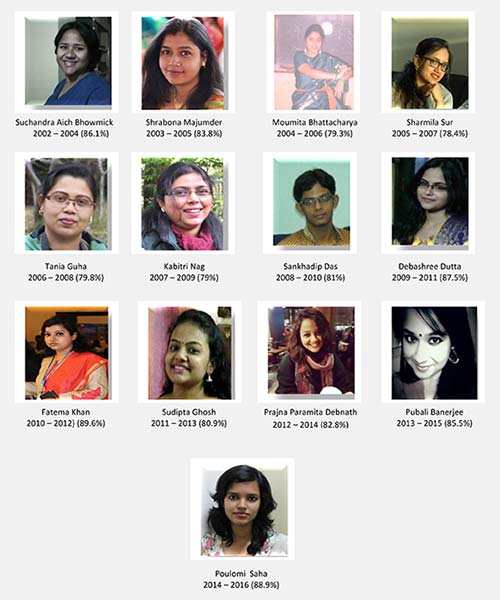
Research Fellows under GOI supported Projects
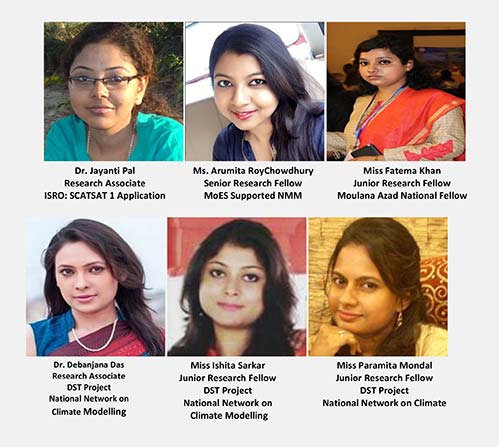
Ph. D. Degree Awarded from the Department of Atmospheric Sciences
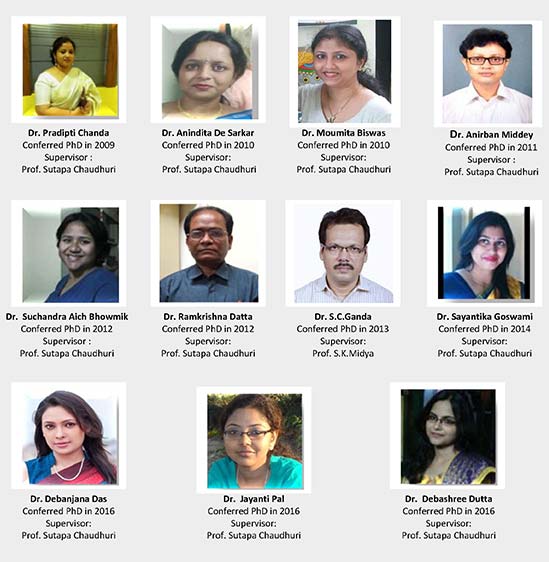

Research Area
| Research in the field of weather and climate Sciences has been the prime concern since the inception of the Department. The students have been motivated accordingly for research. The research activities of faculty members and research fellows are briefly portrayed in respective profiles. | |
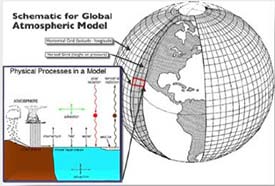
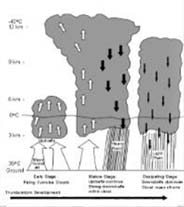
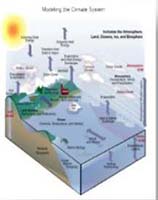
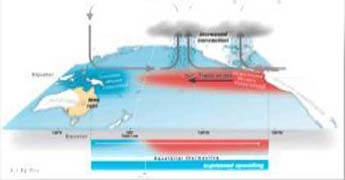 |
Major Research Interest
|
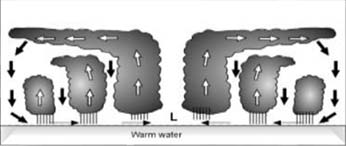
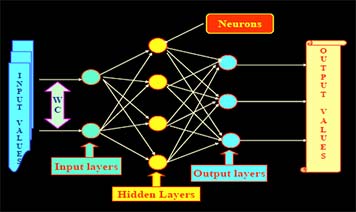 |
Innovative Approach Introduced in Weather & Climate Sciences Introduced the application of Artificial Intelligence (Rough Set Theory, in particular) in the form of Soft Computing Techniques in analyzing & forecasting severe weather systems first time in India. Introduced the application of Graph Theory in analyzing & forecasting the weather systems first time around the Globe. Introduced Chaos and Fractal Geometry in the Studies of Atmospheric and oceanic sciences and in high frequency weather systems like severe thunderstorm first time in India. |
Careers in Atmospheric Sciences in General : There are many different career paths that can be followed in atmospheric science. Below is information on possible career paths for Master’s and Doctoral students. In addition to the listings below, the candidates gain many cross-over skills relevant to other industries including programming and the ability to analyze large data sets. The students also acquire a great background for teaching in the earth system sciences.
Career Paths in Meteorology and Climate Sciences : Broadcast meteorology, Meteorologist for the National Weather Service, Research positions at IMD, IITM, CAS IITD, CORAL IITKgp CUSAT, IISER, Pune, DAS CU, IITB, NEERI, IIST, NARL, CAOS, SAC, ISRO, PRL, NPL, NRSA, NOAA, NASA, DoE, DoD, DoA, NCAR, FSU, etc
Weather analyst for industry, commerce, airlines, government, alternative energy companies, Military weather officer, Renewable Energy Forecasting, Private weather prediction firms, Airline/Boeing Meteorologists, Research in different aspects of weather and climate change sciences, Analyst for environmental impact studies, Climate Positions in State and Local Governments, Climate/weather derivatives -- taking seasonal prediction information and using it for business Reinsurance industry (risk management for natural disasters), Climate observations/monitoring – jobs with NASA, USGS, NOAA Alternative energy companies (e.g., wind power, solar power analysis)
Atmospheric Chemistry and Air Quality Career Paths : Air Quality Forecasting and Monitoring for regional Puget Sound Clean Air Agency), state (e.g. Department of Ecology Air Quality Program), and federal governments (e.g. EPA), Air Quality Consulting, Environmental Consulting
Analytical Instrumentation, sales, marketing, and R&D; there are small businesses that cater to air quality, monitoring, but also opportunities at larger companies that are selling tools for Environmental Monitoring generally.
Non-governmental Organizations (NGOs) – e.g. Clean Air Task Force, Graduate school, Research
Career of Some Students Mastered from the Department
| Dr. Suchandra Aich Bhowmick | (2002 – 2004) | Scientist, Space Application Centre, ISRO |
|---|---|---|
| Dr. Debashish Majumdar | (2002 – 2004) | Associate Scientist at NCAR, Colorado, USA |
| Dr. Surya Kanti Dutta | (2003 – 2005) | NOAA Centre for Weather & Climate Prediction, USA |
| Dr. Madhuparna Mukherjee | (2003 – 2005) | Post Doctoral Fellow, IITM Pune |
| Dr. Bappaditya Nag | (2004 – 2006) | Scientist, Florida, USA |
| Dr. Soumi Dey | (2004 – 2006) | DST-INSPIRE Faculty at IISER, Pune |
| Dr. Srabanti Ballav | (2004 – 2006) | Post Doctoral Fellow - (ARIES), Nainital |
| Dr. Anwesha Bhattacharya | (2004 – 2006) | Senior Research Scientist, KIAP, Seoul, South Korea |
| Dr. Sandipan Mukherjee | (2004 – 2006) | Scientist, GB Pant Institute of Himalayan,Uttarkāshi |
| Dr. Abhijit Basu | (2004 – 2006) | Post Doctoral Fellow – University of Utrecht, Netherlands |
| Dr. Sumana Sarkar | (2005 – 2007) | Scientist, C – MMACS, Bangalore |
| Dr. Anirban Middey | (2005 – 2007) | Scientist, NEERI, Nagpur |
| Dr. Chinmay Mallik | (2005 – 2007) | PDF, Max Planck Institute for Chemistry,Mainz, Germany |
| Dr. Sharmila Sur | (2005 – 2007) | Postdoctoral Researcher at University of Melbourne, Australia |
| Dr. Soumik Basu | (2006 – 2008) | Post Doctoral Research Fellow at IARC, Alaska |
| Dr. Ipsita Putatunda | (2006 – 2008) | Works at National Aerospace Laboratories, Bangalore |
| Dr. Soumi Chakraborty | (2006 – 2008) | DST-INSPIRE Faculty at IISER, Pune |
| Dr. Tania Guha | (2006 – 2008) | Works at Academia Sinica, Taiwan |
| Mr. Sukanta Sau | (2007 – 2009) | SRF at EGRL, Indian Institute of Geomagnetism, Mumbai |
| Ms.Pami Mukherjee | (2007 – 2009) | Graduate Assistant at Rutgers University—Newark |
| Ms. Kabitri Nag | (2007 – 2009) | PhD student at Universität Oldenburg, Germany |
| Dr. Rohit Ghosh | (2008 – 2010) | Postdoctoral Researcher at Max Planck Institute, Germany |
| Dr. Samitaksha Talukdar | (2008 – 2010) | Postdoctoral Researcher at IRPE CU |
| Dr. Upal Saha | (2008 – 2010) | UGC-Dr. D. S. Kothari Post Doctoral Fellow. BHU Varanasi |
| Mr. Tapomay Hazra | (2008 – 2010) | Senior Research Fellow, FASAL Project, IMD |
| Ms. Sweta Das | (2008 – 2010) | Doctoral Programme, Florida State University, USA |
| Ms. Arumita Roy Chowdhury | (2008 – 2010) | Senior Research Fellow, DAS - CU |
| Dr. Sayantani Ojha | (2008 – 2010) | Research Scientist, Institute of Oceanography, Hamburg Univ. |
| Mr. Arjya sarkar | (2009 – 2011) | PhD student at Dalhousie University, USA |
| Ms. Paromita Chakrabarty | (2009 – 2011) | Scientist at NCMRWF, New Delhi |
| Dr. Debanjana Das | (2009 – 2011) | Post Doctoral Fellow, National Network on Climate Modeling |
| Ms. Bithi De | (2009 – 2011) | Research Fellow, Purdue University West Lafayette, Indiana |
| Dr. Debashree Dutta | (2009 – 2011) | Scientist, Indian Forest Services, West Bengal |
| Dr. Jayanti Pal | (2009 – 2011) | Post Doctoral Fellow, ISRO SCATSAT Application Programe. |
| Miss Kamalika Sengupta | (2009 – 2011) | Ph.D. Student, University of Leeds, UK |
| Mr. Sourangsu Chowdhury | (2010 – 2012) | Ph. D Student, CAS IIT New Delhi |
| Mr. Abhinandan Ghosh | (2010 – 2012) | Research Fellow, Bose Institute, Kolkata |
| Miss Fatema Khan | (2010 – 2012) | Ph.D. Student, Moulana Azad National Fellow, DAS CU |
| Miss Paramita Mondal | (2010 – 2012) | JRF DST National Network Climate Modeling, DAS CU |
| Miss Monami Dutta | (2010 – 2012) | Research fellow at Bidhan Chandra Krishi Viswavidyalaya |
| Miss Oindrila Nath | (2010 – 2012) | SRF at National Atmospheric Research Laboratory |
| Miss Priyanka Ghosh | (2010 – 2012) | SRF at National Atmospheric Research Laboratory |
| Mr. Soumyajit Hazra | (2011 – 2013) | Meteorologist at Skymet Weather |
| Miss Soumi Dutta | (2011 – 2013) | Ph.D. Student, CAS, IIT Delhi |
| Mr. Tanmoy Mukherjee | (2011 – 2013) | JRF at IIT Bhubaneswar |
| Miss Sudipta Ghosh | (2011 – 2013) | Ph.D. Student, CAS, IIT Delhi |
| Mr. Devanil Choudhury | (2011 – 2013) | Project Scientist-B, NCMRWF |
| Mr. Soujan Ghosh | (2011 – 2013) | Junior Research Fellow at ICSP, Kolkata |
| Mr. Panini Dasgupta | (2011 – 2013) | Research Fellow at IITM, Pune |
| Mr. Abirlal Metya | (2012 –2014) | Research Fellow, IITM Pune |
| Mr. Soumya Samanta | (2012 – 2014) | JRF, IITM, Pune |
| Miss Sreyashi Debnath | (2012 – 2014) | Research Fellow, IITM, Pune |
| Miss Ishita Sarkar | (2012 – 2014) | JRF DST National Network Climate Modeling, DAS CU |
| Miss Prajna Paramita Debnath | (2012 – 2014) | Post Graduate/Master Student at Universität Hamburg |
| Miss Tanusree Mukherjee | (2012 – 2014) | Research Fellow, Bose Institute, Kolkata |
| Mr. Suman Halder | (2013 – 2015) | Works at SICSS at Universität Hamburg |
| Mr. Sambrita Ghatak | (2014 – 2016) | Research Fellow, CAOS, IISc, Bangalore |
Participation in National Research Programme
STORM - Severe Thunderstorm: Observation & Regional Modeling Severe thunderstorms are important weather phenomena which impact on various facets of National activities like Civil and Defense operations, particularly Aviation, Space Vehicle Launching, Agriculture, in addition to this, its damage potential to life and property. They occur over different parts of India during different seasons. Forecasting pre-monsoon thunderstorms in peninsular, northeast, and northwest India, particularly, over Gangetic West Bengal and in winter over the Sub-Himalayan belt is a prime necessity. Although thunderstorms belong to cloud scale or meso scale systems, the large-scale or synoptic scale atmospheric processes control their genesis. As no detailed studies were available on this phenomenon, the Atmospheric Scientists of India realized that intensive research both, experimental as well as theoretical have to be undertaken to understand the genesis, development, morphology and dynamics of thunderstorms with a view to develop indigenous modelling capability for its improved prediction in India.The Department of Science & Technology, Govt. of India has launched a National Programme on Severe Thunderstorm: Observational & Regional Modeling (STORM) in 2006. The Department of Atmospheric Sciences, University of Calcutta has been identified as a Lead Institution for DST Supported National Programme “STORM”. Prof. Sutapa Chaudhuri, an executive member of STORM - PIC, has been empowered to conduct the First Pilot Field Experiment – 2006 in collaboration with IMD, IAF & IIT Kharagpur. Twenty three publications in peer reviewed journal and two PhD came out of this project. Total outlay of the project was about Rs. 74 lakhs.
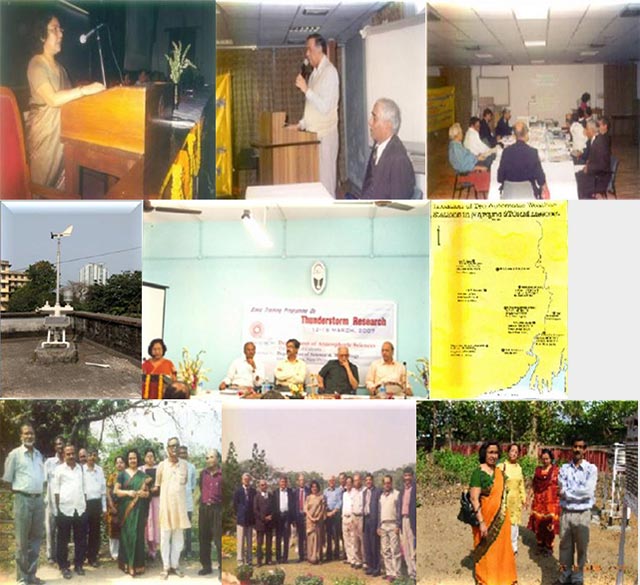
| CAWSES - Climate and Weather of Sun Earth System Department of Atmospheric Sciences, University of Calcutta has been identified by ISRO a Potential Participant in Climate and Weather of Sun Earth System (CAWSES). Prof. Sutapa Chaudhuri, a member of the working Group has been empowered by ISRO to develop Electro – Dynamic Coupled Model using Schumann Resonance and Global Electric Circuit. The influence of near surface electric field values and temperature on lightning flash rate during pre-monsoon Thunderstorms has been identified. One publication in peer reviewed International journal and three MSc dissertations came out of this project. Total outlay of the project was about Rs. 12 lakhs. |
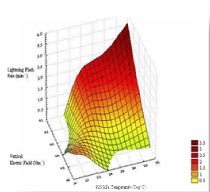 |
| MAPAN - Modelling Atmospheric Pollution and Networking A memorandum of understanding (MOU) has been signed between the Indian Institute of Tropical Meteorology (IITM) Pune and Department of Atmospheric Sciences, University of Calcutta for Air Quality Monitoring network and Atmospheric Pollution Modelling project named as MAPAN (Modelling Atmospheric Pollution and Networking) as part of the scientific initiative which is fully funded by the MoES. The main objectives of this project are setting up of air pollution monitoring stations at selected strategic locations in India to monitor NOx, CO, O3, Hydrocarbons, Suspended Particulate matters and weather parameters to address some detailed questions related to short term climate change and its impact by installing continuous ambient air quality monitoring system (CAAQMS). The lead scientists of this MOU are Dr. Gufran Beig from IITM and Prof. Sutapa Chaudhuri from CU. Comprehensive Characterisation of Ambient Air Quality over Kolkata has been assessed using continuous ambient air quality monitoring system. One publication in peer reviewed journal came out of the project and one PhD is on the process. Total outlay of the project was about Rs. 20 lakhs. |
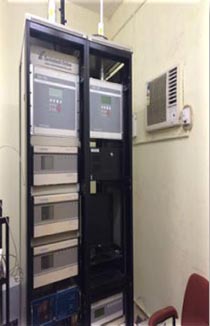 |
| NMM – National Monsoon Mission The Indian summer (southwest) monsoon is referred as lifeline of India, as variability in any of its aspects (onset, withdrawal and quantum of rainfall) greatly influences the agriculture yield, economy, water resources, power generation and ecosystem. Hence, if the variations in monsoon rainfall are known well in advance, it would be possible to reduce the adverse impacts related to excess or deficient rainfall, providing us prior information about droughts and floods. The accurate prediction of monsoon rainfall is a basic need for the nation but remained a challenge over the decades. Ministry of Earth Sciences (MoES), Government of India has launched 'National Monsoon Mission' (NMM) with a vision to develop a state-of-the-art dynamical prediction system for monsoon rainfall on different time scales. MoES has bestowed the responsibility of execution and coordination of this mission to the Indian Institute of Tropical Meteorology (IITM), Pune. For this national mission, IITM is collaborating with academic institutes as well. In this context Prof. Sutapa Chaudhuri has been involved in the mission with the vision to estimate the bias and effort for removal of UM/CFS coupled model output with adaptive techniques for improving forecast skill of Indian summer monsoon. Eleven publications in peer reviewed International journal and three PhD came out of this National Project. Total outlay of the project was about Rs. 38 Lakhs. |
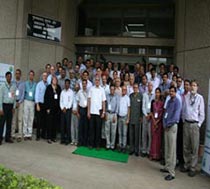
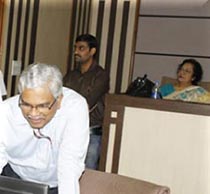 |
| NMSKCC – National Mission on Strategic Knowledge for Climate Change The Department of Science & Technology (DST) under its Climate Change Programme (CCP) of Strategic Programmes, Large Initiatives and Coordinated Action Enabler (SPLICE) Division seeks partnership with lead R&D institutions to help positioning major Human and Institutional Capacity Building Programmes under National Mission on Strategic Knowledge for Climate Change (NMSKCC). Through this programme, the institutions are expected to contribute towards building strategic knowledge for climate change for formulating national and international strategies and policies. Keeping the above in mind, DST invited Proposals for inclusion in National Network in Climate Modeling. Proposal of Prof. Sutapa Chaudhuri as PI on “Climate Extremes: Observations, Analyses & Modeling” has been accepted. Total Outlay of the project is about Rs. 56 Lakhs. |
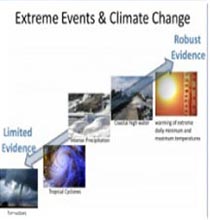 |
| SCATSACT 1 (Scatterometer Satellite-1) Applications SCATSAT-1 is an OceanSat-2 follow-up mission, actually a gap-filler mission between OceanSat-2 and -3, under development at ISRO (Indian Space Research Organization) with the objective to continue the global ocean wind vector data acquisition started by the OSCAT (OceanSat-2 Scanning Scatterometer). The information of global ocean surface winds is an important ingredient for weather forecasts. In particular, a need for global coverage of scatterometer data became evident, when NASA's Sea Winds scatterometer on the QuikSCAT spacecraft ceased nominal operations in November 2009. SAC has approved the proposal of Prof. Sutapa Chaudhuri as PI entitled “Condition – Decision Support System to identify Cyclogenesis over North Indian Ocean for Developing and Non - developing Cyclonic Storms: Numerical Simulation Using SCATSAT – 1 data” . Total Outlay of the project is about Rs. 32 Lakhs. |
 |
Setting up the Centre of Excellence in Climate Sciences (CCS), CU
The changeable climate and unusual or extreme weather are of great public concern which has drawn increased attention in recent decades to understand their causes, yet there are often conflicting messages from scientists about whether such extremes can be linked to climate change.
There is clear evidence that climate has changed as a result of human-induced greenhouse gas emissions, and some aspects of extremes have changed consequently according to the IPCC fifth Assessment Report (AR5) followed by adoption of the Sustainable Development Goals (SDGs) in UNDP’s Strategic Plan in September 2015 and climate change agreement under the UNFCCC in Paris, December 2015.
However, with natural variability playing a substantial role in individual events and given the complexities of the weather and climate processes involved, many challenges still need to be overcome to authoritatively assess how climate change has affected the potency and prospect of individual extremes.
To build research strengths and maintain a sustained flow of quality science into our national climate change agenda and India’s international response there is need to launch a strong, well-coordinated program in regional level to address climate science and extreme weather events in an interdisciplinary mode.
Keeping this in view, a proposal was submitted by Prof. Sutapa Chaudhuri to the Hon’ble Vice Chancellor, University of Calcutta to set up a Centre of Excellence in Climate Sciences (CCS) in the University of Calcutta, as a new programme, under the National Mission Strategic Knowledge for Climate Change (NMSKCC) implemented by DST, Ministry of Science & Technology.
The Proposal has been approved by the Hon’ble Vice Chancellor and a fund was provided to Prof. Chaudhuri for organizing an inception Workshop for the same. An International Workshop on Climate Extreme: Observation, Analyses and Modeling was organised during 27 – 28 February 2017 for the inception of the Centre of Excellence in Climate Sciences.
One of the goals of the proposed Centre of Excellence is to foster the development of scientific methods that can be applied to explain the underlying physical processes causing extreme events and to place the event and associated processes in a historical context of climate variability and change. Scientific methods will be used to evaluate proposed mechanisms for how extreme weather may change in a warming world.
The vision of the proposed centre is to empower the State of West Bengal to mitigate the inevitable variability in climate and extremes and enhance the resilience and adaptation through research.
The mission is to understand the complexities of earth’s climate, monitor and assess its changes and study the implications of these changes to humanity. It would propagate sustainable and pragmatic development agenda backed by scientific research for ensuring a healthy climate in the State of West Bengal.
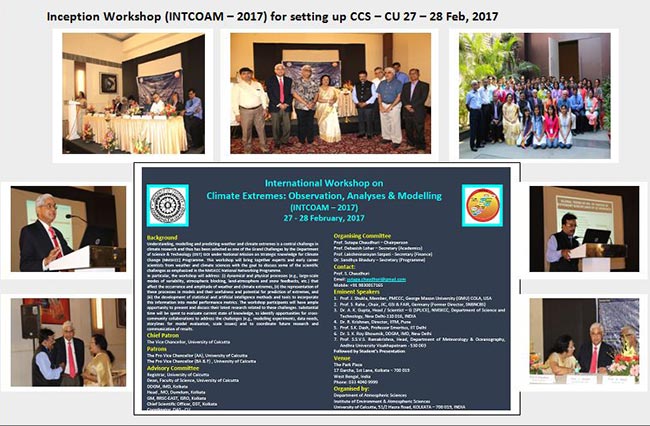
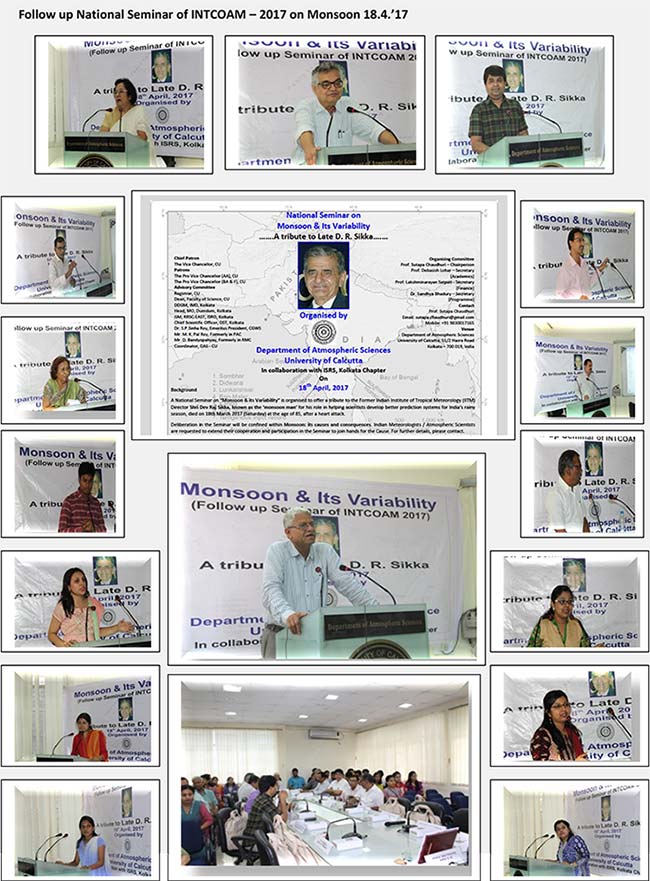
Awards & Appreciations
Awarded DSc in Atmospheric Science
Prof. Sutapa Chaudhuri was awarded the D. Sc. degree in Atmospheric Science from the University of Calcutta in Atmospheric Science in the year 2014.

Received Best Paper Awards

News & Media Publicity

Participation of Research Fellows in National & International Conferences in India & Abroad

Administrative Staff

Campus : Taraknath Palit Siksha Prangan (Ballygange Campus)
Address for communication : Atmospheric Sciences, University of Calcutta, 51/2 Hazra Road, Kolkata - 700019
